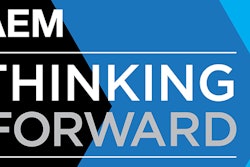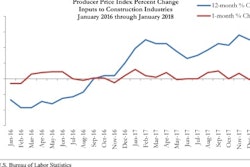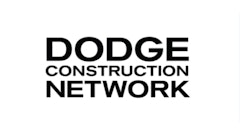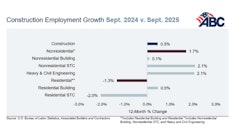The 2018 Smart Infrastructure Challenge is a part of the Regional Smart Cities Initiative. “Rising infrastructure costs continue to strain government budgets while population growth strains the capacities of that very infrastructure," said Venture Smarter President Zack Huhn. "As policies and trends continue to work against aging infrastructure, smart solutions must be implemented to help agencies optimize or altogether replace outdated systems, and to also cut costs, generate new revenue, or create enhanced value for constituents.”
The Smart Infrastructure Challenge will empower cities, councils of governments and government agencies to work together to put forth innovative plans that reflect residential needs and improve connected infrastructure and transportation in their city or region. To help catalyze efforts, Venture Smarter will grant support services to the first 25 regional applicants to help launch interdisciplinary and interagency working groups. The working groups will be dedicated to smart regional infrastructure, technology, and policy planning as outcomes are intended to speed up smart and connected prioritizations and project planning, to align leaders around shared goals and resources, and to promote standards-driven, interoperable, and secure solutions.
But as technology is leveraged to improve cities and regions, it is imperative to bridge the divide across America, not widen it. Rhonda Binda, Executive Director of the Regional Smart Cities Initiatives, highlighted the fact that smart cities and regions are not about technology. “Smart Regions put people first. Technology is simply the tool that helps improve the quality of life for residents and visitors regardless of socioeconomic or geographical barriers.”
FCC Commissioner Mignon Clyburn also spoke on that front. “The benefits of broadband-enabled technologies are vast, but the challenges, particularly for economically-disadvantaged communities, are many. Those unable to benefit and are left behind, may never be able to catch up. With the right balance of smart, targeted policies from the FCC, public-public, public-private and private-private partnerships, communities currently on the wrong side of the digital and opportunities divide, can be positioned for success.”
Zack Huhn, who is also the chairman of IEEE’s committee on smart city standards (P2784,) reiterated the importance of standards-driven planning before sharing more details about the 2018 Smart Infrastructure Challenge. “These efforts cannot happen in silos. They require regional collaborations rooted in interoperability and security.”
Process for the Smart Infrastructure Challenge
To sign up, a letter of intent must be signed by participating agencies or institutions and submitted on or before April 25th, 2018. Program details including step-by-step instructions and deadlines can be found at smartregions.org/challenge or interested parties can contact [email protected].
Regional ‘teams’ will be created and co-managed by government agencies and/or research institutions charged with creating a tech-enabled vision for integrating intelligent, interoperable systems into infrastructure (hard and soft) and government systems. These visions and plans must be ready to present at the Fall 2018 Smart Regions Conference in Columbus, OH on October 25th, 2018.
In an effort to support ‘teams’ pursuing the Smart Infrastructure Challenge, Venture Smarter will host a series of Smart Mobility and Infrastructure Leadership Summits across the country this spring, summer, and fall. Events in Cincinnati, Denver, New York, and Washington DC were specifically referenced.
Additionally, Venture Smarter will provide free support services to participating Councils of Government, Metropolitan Planning Organizations, government agencies, universities, and research institutions to help them work together to research, plan, fund, and deploy these new ideas and solutions.
Following presentations this Fall at the Smart Regions Conference, three regions will be awarded funds and integrated support to pursue the plan and visions created with full support from the Regional Smart Cities Initiative.
CEO of the Ohio-Kentucky-Indiana Council of Governments Mark Policinski expressed the need for collaboration on a panel following the announcements at the event, “A mosaic of Smart cities across this county will never happen unless there is unprecedented cooperation between government and the private sector. Technology can be a powerful smart tool only if all of us are marching together into the future.”
OKI was the first region to launch a ‘Regional Smart Cities Initiative’ with Venture Smarter, where an integrated relationship between the regional council of governments, the University of Cincinnati, and a large partnership ecosystem paved the way for a first of its kind public-private-partnership to research, plan, fund, and deploy smart technologies, strategies, and policies across the tri-state region.
In Greater Cincinnati, Uber is among the participating companies supporting a vision for Smart Regional growth. “Uber is partnering with cities, regions, and transit agencies to make it even easier for people to get where they need to go,” said Dave Barmore from the Uber government affairs team.



















